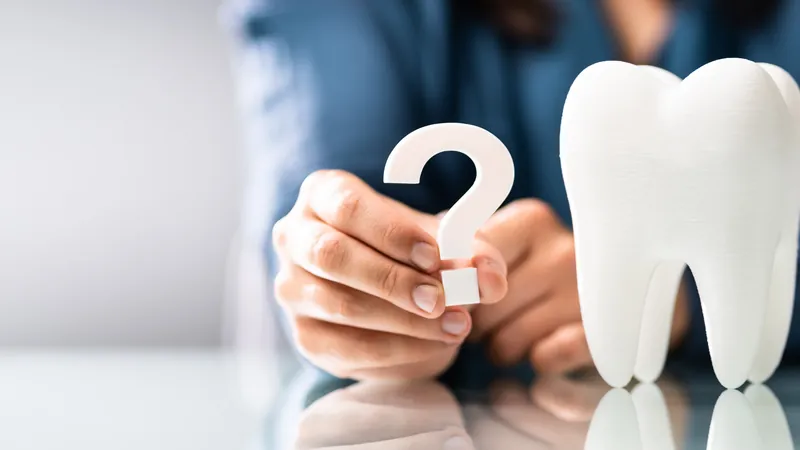
Breakthrough Research Reveals Why Our Teeth Become Brittle with Age!
2024-12-24
Author: Jacques
Introduction
In a fascinating study, researchers from the University of Washington and the Pacific Northwest National Laboratory have ventured into the atomic world of tooth enamel to uncover the secrets behind the increasing brittleness of teeth as we age. Their findings could change everything we know about dental health!
Study Focus
The study, recently published in the journal *Communications Materials* on December 19, focuses on enamel samples sourced from two individuals: a healthy 22-year-old and a 56-year-old. The team discovered that the enamel from the older individual exhibited elevated levels of fluoride, particularly concentrated in the outer shell regions of the enamel's crystalline structure. This surprising revelation sheds light on the relationship between aging and dental composition.
Methodology
To delve deep into the atomic variations of enamel, the researchers employed a cutting-edge technique known as atom probe tomography. This advanced method allowed them to map out a three-dimensional image of each atom in the enamel samples, effectively tracking changes in mineral content at an unprecedented level of detail.
Expert Insights
Lead author Jack Grimm, a doctoral student in materials science and engineering at UW, stated, "Our goal is to pinpoint exactly how mineral content evolves with age. It's a critical aspect of understanding dental health, and to observe these changes, one must examine them at the atomic level."
Co-senior author Dwayne Arola, a respected professor in the same field at UW, emphasized the importance of this research: "Previously, our studies were limited to observations on a much larger scale—approximately a tenth the size of a human hair. This meant that discerning the intricate distribution of mineral and organic components within the enamel crystals was nearly impossible."
Implications for Dental Care
As a result of this groundbreaking research, we may soon have innovative ways to improve dental care and products, ultimately enhancing our oral health as we age. The implications could be profound, leading to better preventive measures against tooth decay and brittleness that affects millions of people worldwide.
Conclusion
Stay updated on this and other exciting developments in dental science, as researchers continue to unlock the mysteries of our teeth!









 Brasil (PT)
Brasil (PT)
 Canada (EN)
Canada (EN)
 Chile (ES)
Chile (ES)
 España (ES)
España (ES)
 France (FR)
France (FR)
 Hong Kong (EN)
Hong Kong (EN)
 Italia (IT)
Italia (IT)
 日本 (JA)
日本 (JA)
 Magyarország (HU)
Magyarország (HU)
 Norge (NO)
Norge (NO)
 Polska (PL)
Polska (PL)
 Schweiz (DE)
Schweiz (DE)
 Singapore (EN)
Singapore (EN)
 Sverige (SV)
Sverige (SV)
 Suomi (FI)
Suomi (FI)
 Türkiye (TR)
Türkiye (TR)